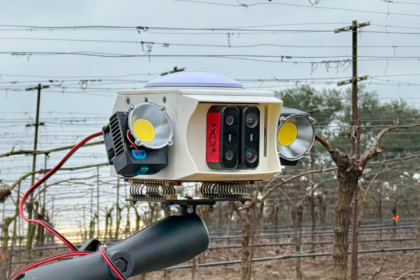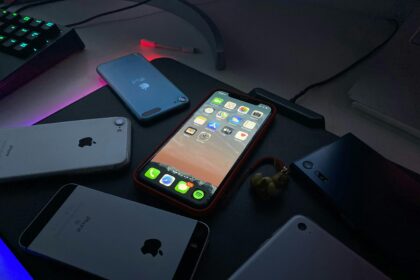Amazon has acquired Bee, the AI wearable startup that makes a $50 bracelet that listens to your conversations so it can help you remember stuff later. Think Fitbit meets your nosy but helpful best friend.
The deal is not officially closed yet, but Bee co-founder Maria de Lourdes Zollo broke the news on LinkedIn, and Amazon confirmed it “Yes, it’s happening, just not done yet”.
So, what exactly is Bee? Imagine a bracelet (or an Apple Watch app) that is always listening, unless you tell it to shut up, and then uses what it hears to build reminders and to-do lists for you. Left your keys again? Bee heard you mutter, “Ugh, I always leave them on the counter,” and might remind you next time. That’s the pitch.
At $49.99 (plus a $19/month subscription), Bee is way cheaper than most wearable AI gadgets. For comparison, the Humane AI Pin costs a whopping $499 and has been, well, less than warmly received. Bee is aiming at the curious-but-cautious consumer who’s not ready to commit half a rent check to try out ambient AI.
But Bee doesn’t stop at just making lists. The company’s dream is something it calls a “cloud phone.” It’s like having your actual phone mirrored on your wrist, giving the bracelet access to your accounts and notifications. Think less Siri, more invisible friend who’s always paying attention.
On its website, Bee says it wants to be “a trusted companion” that helps users reflect, remember, and move through the world more freely. Kind of sweet. Also a little bit creepy. It depends on how you feel about tech that hears everything.
So why does Amazon care?
This is Amazon moving beyond Echo speakers and Alexa into wearable AI. While everyone else, Meta, OpenAI, and Apple is stuffing AI into glasses, Amazon is going for the wrist. With Bee, they’re betting on a future where your assistant isn’t just in your living room; it’s following you everywhere.
And yes, that raises eyebrows about privacy.
Bee claims it doesn’t store audio recordings or use them to train its AI. Users can delete their data, and the app only remembers the helpful things, like your routines or preferences. There is also talk of upcoming features like on-device processing (less cloud = more privacy) and topic/location-based boundaries that tell Bee when to shut up automatically.
Related: Lovable Hits $100million Annual Recurring Revenue in Just 8 Months.
Also, Bee said it only listens to people who’ve verbally consented. But here’s the kicker: Will those privacy rules survive Amazon? That is the billion-dollar question.
Amazon doesn’t exactly have a squeaky-clean privacy record. Remember Ring? The company has shared users’ doorbell footage with law enforcement no permission a warrant. And in 2023, it settled with the FTC over claims that employees had far too much access to customers’ videos. Not a great look.
So as Bee joins the Amazon hive, it’s unclear whether its user-first privacy policies will stick around or if they will quietly fade into a long, scrollable terms-of-service page no one reads.
Still, the potential here is huge. Imagine a world where your bracelet hears you say, “I should call Mom,” and reminds you later. Where forgetting your shopping list is a thing of the past. Where your AI listens like a friend and not like a surveillance camera.
But can Amazon deliver that without turning it into another data-hungry device? That’s the real test. Amazon’s move into AI wearables could redefine personal assistants, but only if it can strike a balance between usefulness and privacy. Otherwise, we are just strapping spyware to our wrists. So… would you wear a bracelet that listens to everything you say?







